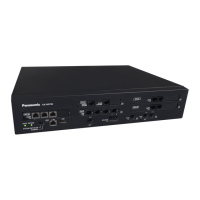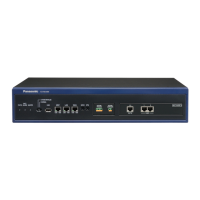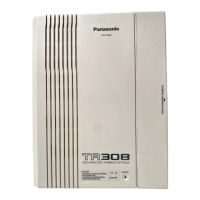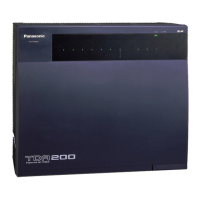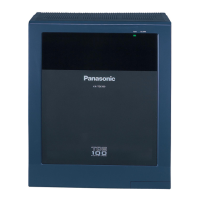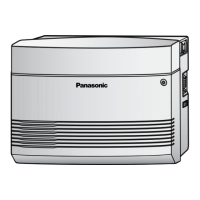3.2.1.19 Hold
Description
Provides the caller with the option of temporarily going on hold when the called extension is busy. The Unified
Messaging system automatically recalls the extension after a specified period of time. When several callers
are holding for the same extension, callers are connected to the extension in the order in which they originally
called.
PC Programming Manual References
23.1 UM Configuration—[4-1] Service Settings—Caller ID / PIN Call Routing—23.2 UM Configuration—[4-2]
Service Settings—Parameters— Call Hold Mode
3.2.1.20 Holiday Service
Description
Allows the system to override the normal settings assigned for the appropriate trunk service or port service by
playing a special holiday greeting. (e.g., "Happy New Year! Our office is closed today. If you wish to record a
message, please press 1 now".) A maximum of 24 holidays can be programmed. A holiday can be a specific
day or range of days.
Conditions
• Holidays cannot overlap with each other.
• The holidays stored in the Unified Messaging holiday table are managed separately from those in the
holiday table used for Time Service (® 5.1.4 Time Service). However, holidays specified in the Time
Service holiday table can be copied to the Unified Messaging holiday table.
PC Programming Manual References
23.4 UM Configuration—[4-4] Service Settings—Holiday Table
3.2.1.21 Hospitality Mode
Description
Allows a subscriber to access certain subscriber services in a dedicated, 'hospitality' mode. Subscribers in
hospitality mode can listen to messages, change the password, change personal greetings, and change the
owner’s name, if enabled to do so through system programming. Also, it is possible to set whether the
password, personal greeting and owner name settings are deleted upon check-out.
PC Programming Manual References
21.1 UM Configuration—[2] Class of Service—Hospitality Mode
Feature Guide References
2.23 Hospitality Features
Feature Guide 341
3.2.1 System Features
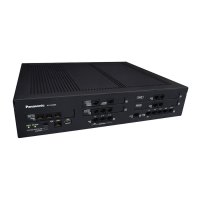
